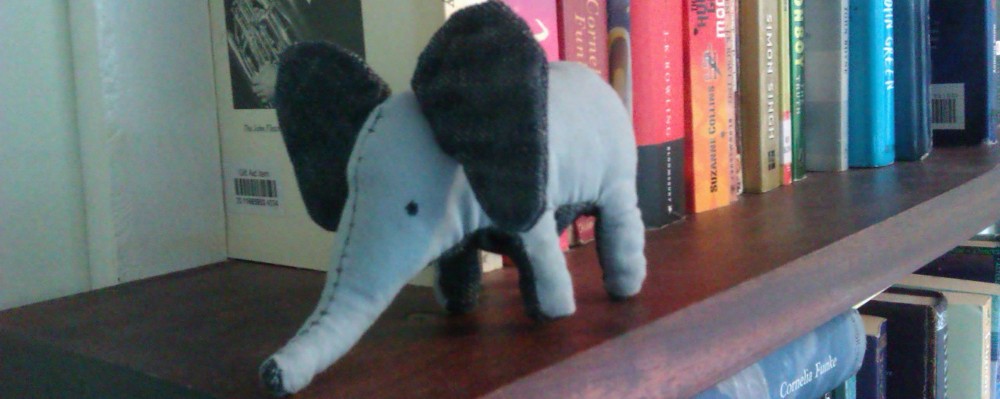Sometimes when I tell people what subjects I do or I want to study at university, they say “Oooh, that sounds horrendous!” Honestly, I think it sounds wonderful but it’s not comments like this that I mind. It’s comments like “Yeah, I like maths too, because with maths, it’s not like English, you’re either right or wrong, you know where you stand, it’s just black and white!” It annoys me because I worry that it’s true. I worry that all there is to maths is formulas that you plug numbers into, and if the right answer pops out at the end, you’re deemed to be an excellent mathematician, and if the wrong one pops out, then, well…. Maybe you’d better go back to English class, where there is no right answer.
Let me explain what I mean. Once as a child I had a question which asked me to make up £6.30 out of just 20p and 50p pieces, where I had to have the same number of 50ps and 20ps. At the time, I couldn’t think what to do so I just added together 50 and 20 over and over until I had 630.
50p + 20p + 50p + 20p + 50p + 20p + 50p + 20p + 50p + 20p + 50p + 20p + 50p + 20p + 50p + 20p + 50p + 20p = £6.30
Nine of each coin.
This took a long time and a lot of space on my paper, but the answer I got was exactly right. The person next to me had a more intelligent approach – they added 50 and 20 to get 70 and then divided 630 by 70, to find the number of 50ps and 20ps they would need.
50p + 20p = 70p
£6.30 ÷ 70p = 9
Nine of each coin.
They had found a much quicker, more intelligent and simpler method to find the same answer. But it was the same answer, so we got the same mark, and this concerns me. My friend’s method was much more intelligent not to mention more efficient than mine, and it showed a deeper understanding of concepts like division – this person had a better understanding of the maths in this particular question than I did, and yet we got the same marks in the test – baffling. I know this sounds controversial but I honestly believe that even when you get the right answer, the intelligence and insight of the method should be rewarded, because (and this is the crazy part) I honestly don’t think the answer matters.
Take English Literature for example. Another fun question from my primary school days was: Who do you think was responsible for the death of the King? Macbeth (who actually killed him) or Lady Macbeth (who convinced him to do it). It’s clear to everyone that in an English lesson, the answer to this question doesn’t matter. What matters is how you argue it. Obviously you’ll get fewer marks for saying:
“Well Macbeth killed him so it’s his fault.”
Than for saying:
“I think that [insert quote here] reflects the idea that, at the time men were considered responsible for their wives and therefore Shakespeare is suggesting that Macbeth was responsible as he shouldn’t have let his wife persuade him/ let her get so jealous of the king’s throne.”
They both came to the same answer, so why not get the same marks?
Because the second has complex reasoning, and evidence to back it up; it has a greater understanding of the historical context and the intentions of the author; it’s more balanced because in a way it’s combating a counter argument (that it was Lady Macbeth’s fault for persuading him) rather than just presenting a (sort of meaningless) pro argument. In English, you get more marks for being able to think more intelligently, why not maths?
Here’s the crux: Both the Macbeth arguments were valid points – they made sense, they were perfectly acceptable ways of reaching a decision. In the same way the two maths methods both had valid reasoning – they were both perfectly reasonable ways of working out how many coins were needed. But in both maths and English, simply stating an answer should not matter. What matters is how you get there. It’s the evidence, the explanation, the way you choose to go about it and how well you understand what you’re doing; and the best part is there is no one correct way to go about it. A lot of approaches could be valid but it’s with creativity and deep understanding that you get to the top of the class.
That’s what English Literature is. And (I think) that’s what maths should be too.
I don’t think maths is all about blindly number-crunching until you get to the answer in the back of the textbook, even if that’s what it seems like at school. I think it’s about understanding how the universe works by wrapping your brain around the complex nature of shapes, quantities and dimensions; patterns, structure and space.
So yeah, I don’t think it’s right or wrong. I don’t think it’s all black and white. I think it’s about 50 000 shades of grey : P
I dunno, maybe I’m studying the wrong subject. Maybe I’d better just go back to English.
